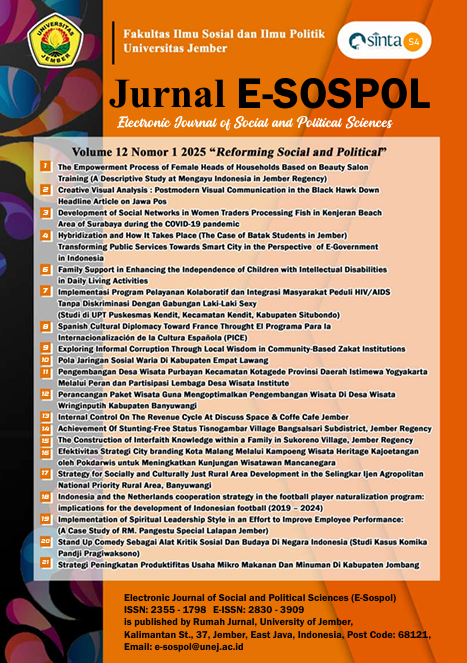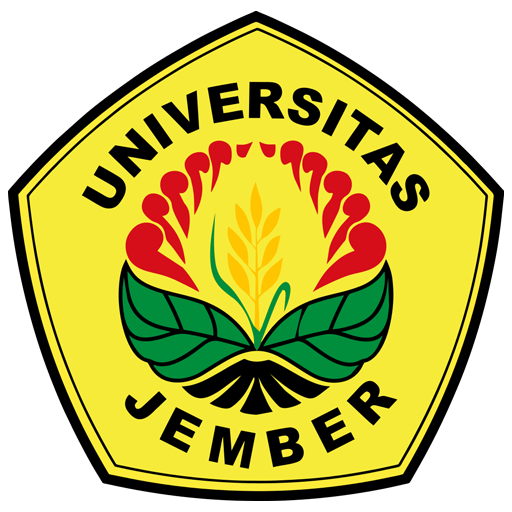The Construction of Interfaith Knowledge within a Family in Sukoreno Village, Jember Regency
DOI:
https://doi.org/10.19184/e-sospol.v12i1.53707Abstract
Religious difference remains a sensitive issue in Indonesia, often becoming a source of social tension and conflict. In contrast, Sukoreno Village is characterized by its religious diversity and relatively harmonious interfaith relations. This study aims to analyze the construction of interfaith knowledge within a family living in Sukoreno Village. The phenomenon is examined through the lens of Social Construction Theory as developed by Peter L. Berger. This research adopts a qualitative method with a constructivist approach. The findings indicate that religious diversity has become a normalized aspect of family life in the village, forming a social reality that has been sustained across generations. This reality emerges through a process of knowledge construction that involves the stages of externalization, objectivation, and internalization. Furthermore, religious difference within the family setting gives rise to a range of social meanings and interpretations.
Downloads
Downloads
Published
Issue
Section
License
Penulis yang mengusulkan naskahnya untuk dapat diproses penerbitannya pada e-SOSPOL dianggap telah menyetujui beberapa hal sebagai berikut:
1. Penulis tidak dapat menarik naskah yang telah usulkan untuk diproses hingga mendapat jawaban dari Ketua Dewan Penyunting atas status naskah artikel ilmiahnya (diterima atau ditolak untuk diterbitkan).
2. Penerbit tidak bertanggung jawab terhadap kasus plagiasi atas artikel yang terbit pada e-SOSPOL
3. Penerbit tidak bertanggung jawab atas data dan isi dari artikel yang diterbitkan pada e-SOSPOL, dan sepenuhnya merupakan tanggung jawab penulis.







